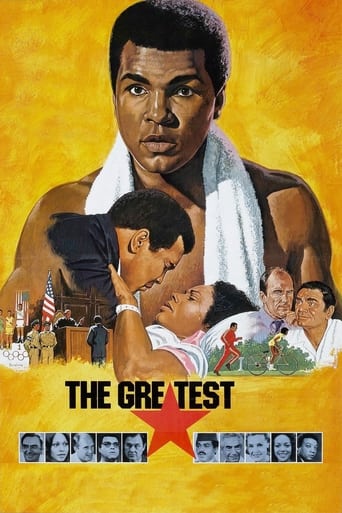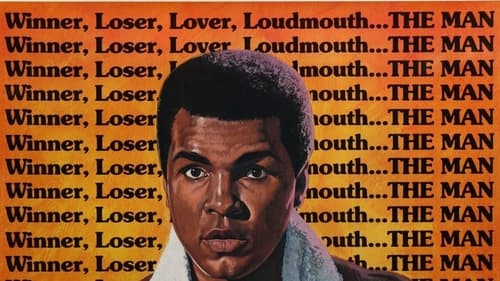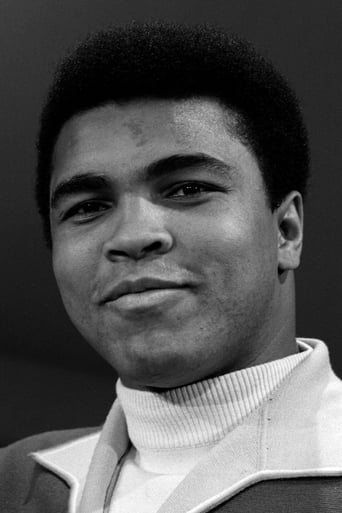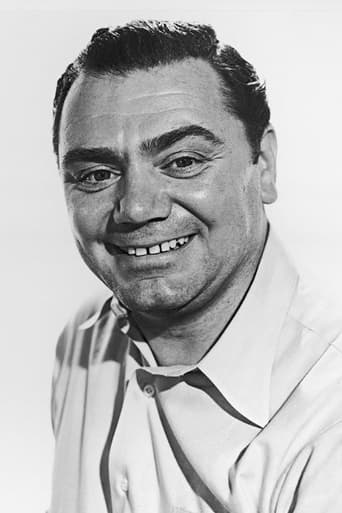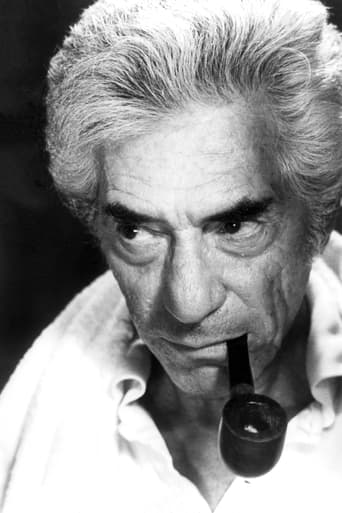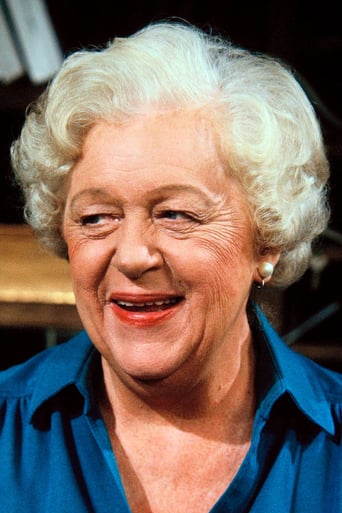Holstra
Boring, long, and too preachy.
Catangro
After playing with our expectations, this turns out to be a very different sort of film.
Tobias Burrows
It's easily one of the freshest, sharpest and most enjoyable films of this year.
Bob
This is one of the best movies I’ve seen in a very long time. You have to go and see this on the big screen.
jfarms1956
The Greatest is a movie that can be best appreciated by those who are 18 and older. The movie discusses more than black and white issues. The movie depicts the fighter, Mohammad Ali as truly a unique individual in this biographical sketch of the period of between Cassius Clay returning to America from the Olympics after winning his gold medal through his transformation into Mohammad Ali and his boxing bouts with Frasier and Forman. Mohammad Ali lived true to his convictions. The movie portrays him as a man who knew what was right, knew what he wanted, and most importantly, knew how to get it. The Greatest also tells of his fight with the US Army and his refusal to be inducted into the Armed Forces. The movie requires your full attention. It is unusual that the star of the movie is the man the movie is about. How does one "act" to be oneself. The movie has a decent storyline. The movie requires your full attention and there is no time for popcorn here. Save it for after the movie when discussing the movie with friends.
MARIO GAUCI
The original (and nominal) director here, Tom Gries, died of a heart attack while the film was still in production; somewhat perversely, Monte Hellman (who usually had to struggle to set-up his own personal projects) seemed like the go-to-guy in similar situations – since he would be assigned similar 'doctoring' duties on AVALANCHE EXPRESS (1979), whose own viewing preceded this one! While it was most probably green-lit in the wake of the boxing sleeper hit (and surprise Oscar triumph) ROCKY (1976), earlier in the decade another film on a black champ within this particular sporting field had emerged i.e. THE GREAT WHITE HOPE (1970) – in which James Earl Jones had been Oscar-nominated for his turn as Jack Johnson and who, here, turns up briefly as yet another controversial historical figure, Malcolm X (himself the subject of a 1992 film, where he would be interpreted by Oscar contender Denzel Washington).Anyway, it was a rarity to have the protagonist of a biopic played by the man himself; legendary Muhammad Ali – formerly known as Cassius Clay – 'performs' adequately enough under the circumstances (though some disparagingly opined that he was unconvincing!), so much so that he would later star in the made-for-TV American Civil War epic FREEDOM ROAD (1979). For the record, his life-story would also be treated in a number of documentaries, such as a.k.a. CASSIUS CLAY (1970) and the Oscar-winning WHEN WE WERE KINGS (1996) – both of which I own but have yet to check out – as well as Michael Mann's more thorough feature ALI (2001; for which star Will Smith would also be up for a Best Actor Oscar). Incidentally, the name-change was from Clay to Ali occurred when he changed his faith from Christianity (rejecting it for being "the white man's religion 'mandating' that the black man suffer while on Earth and reap his rewards in the afterlife"!) to Muslim (the boxer's association with the revolutionary Malcolm X would be frowned upon by his promoters, while Ali's pacifist views would land him in trouble with the authorities when he refused to be drafted in the Vietnam War, whereupon he was stripped of his titles!).Thankfully, the script (by sports authority Ring Lardner Jr. and an uncredited Bill Gunn, perhaps best-known for his radical take on the vampire theme with GANJA & HESS {1973}) does not whitewash its subjects, depicting Ali as misogynistic (liberally seducing white women and dominating those of his own color) and brash (openly aggravating his opponents in order to throw them off-balance) and Malcolm himself as delusional. The heavyweight bouts themselves are presented briefly via stock footage, with more time allotted to the 1974 "Rumble In The Jungle" with Ali making a spectacular comeback facing George Foreman (actually exclusively dealt with in the afore-mentioned WHEN WE WERE KINGS – by which time the protagonist would have become afflicted with Parkinson's Disease, though he did turn up unannounced at the awards ceremony!) and which ends THE GREATEST itself on a high note. Such powerful moments are intermittently felt throughout, but the end result does not really prove the compelling portrayal that was clearly intended! In fact, among its deficiencies, one has to include the movie's soundtrack – composed of equal parts sappy songs by George Benson (notably "The Greatest Love Of All") and a pulsating score (during the ROCKY-type training sessions) that are very evocative of its era, that is to say, feel dated at this juncture! Nor is the film helped in any noticeable way by the star-studded supporting cast – highlighting Ernest Borgnine (as Ali's trainer), John Marley (his doctor), Robert Duvall (the afore-mentioned flustered promoter), Ben Johnson (as an early supporter), a thinned-down Paul Winfield (as his defence counsel) and Roger E. Mosley (as Sonny Liston, the heavyweight champ he first lost to and then triumphed over).
Joseph P. Ulibas
9?¬9?est (1977) was a bio-pic that starred Muhammed Ali as himself. This film was based upon a biography that was titled the same as the movie. Who else could portray the "Greatest of All Time" other than the man himself. The movie follows Ali from when he was known as Cassius Clay, winning the boxing gold medal, winning the World's Heavyweight Boxing title from Sonny Liston, refusing to be inducted into the military because of his deep religious beliefs and so on. How far does the film go into his life? You'll have to find out when you watch THE GREATEST!!I felt that Ali did a good job of portraying himself. I can't see any other person being able of doing the job. ALI, the movie just didn't do the man justice. It was filled with a lot of flaws and omissions. THE GREATEST may not be the best movie around, but if you want to see the man in all of his glory then you have to watch this movie. It was a real hoot to see Ali running his famous "Louisville Lip" and it was also nice to see Ali's inner circle of friends and confidants live and up close. I enjoyed this film much more than the overrated ALI.Recommended for boxing fans.
dtucker86
Maybe the producers of this film thought it would be highly original to have Ali play himself. I can picture them sitting down and saying that really there is no actor who could do this man justice (this was before Will Smith was born!). However, Ali just couldn't act. Its sad watching him play himself as a young man when he's so obviously overwieght older and out of shape. Also I think that at the time this film was made, he was beginning to develop Parkinsons. His speech was already becoming slurry. The filmakers surround Ali with a professional cast of actors like James Earl Jones and Ernest Borgnine as Angelo Dundee, but Ali just wasn't right for this. Maybe this is one film that should never have been made. The lead up to the climatic Rumble in the Jungle with Foreman where he regains the title is done very well, it shows him training and running. They show quite a bit of footage from Ali's fights which is fine because they are from his best fights, the only thing is they keep playing the same damn music OVER AND OVER for them! It got kind of irritating. It was thrilling though in the end when Ali went up against the younger and stronger George Foreman and beat him in a stunning upset by using that "rope a dope" strategy. The final words of the film are of the fight commentator when he says "Foreman goes down, Muhammad Ali has done the IMPOSSIBLE! He has regained the Heavyweight Championship of the World"
